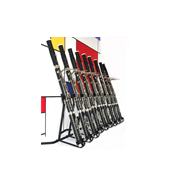Playing the bassoon and the cost of living: Part 3
August 12th, 2022
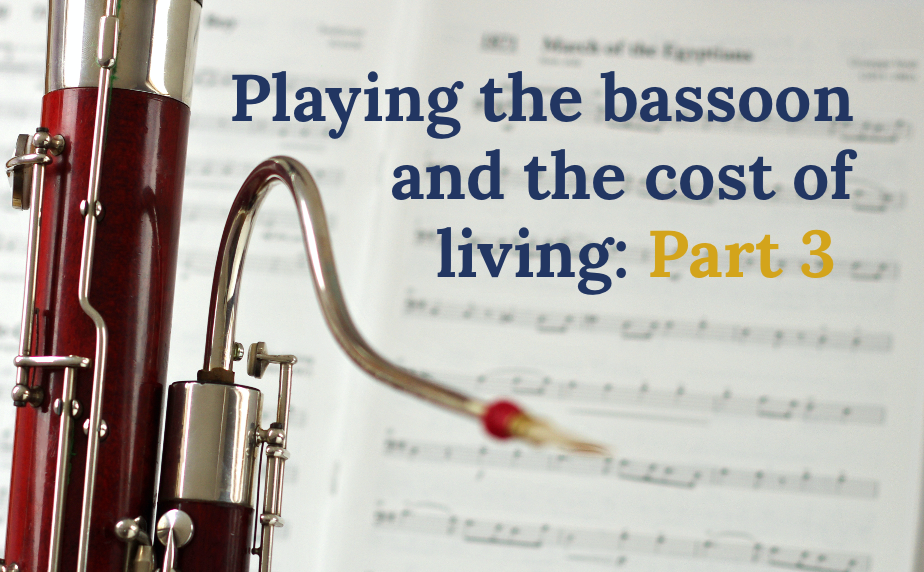
Playing the bassoon and the cost of living: Part 3
Playing the bassoon and the cost of living: Part 3
This is the third in a series of three articles on how bassoonists can combat the “cost of living crisis”.
The first covered immediate and short-term steps bassoonists can take to reduce expenditure without impacting on progress. The second looked at the largest medium-term expenditure which bassoonists have – the costs of servicing and maintenance – and how they can be managed to keep costs low. This third article looks at the cost of buying a bassoon and how to make a wise investment.
Could bassoons be cheaper?
It would benefit everyone if bassoons were cheaper: it would open up the bassoon to many more people, bringing them the pleasures and benefits of playing which they currently can’t afford. It would also help everyone involved with bassoons professionally from teachers to repairers and retailers.
However, bassoons are highly complex and time-consuming to make. They need high levels of skill and know-how to produce them and craftspeople with the right skills are scarce. The outcome of this is high new prices.
Second hand prices are derived from new prices. Nearly-new models are worth a bit less than new, and it cascades down from there. Because well-looked-after bassoons can play as well now as they did when new if suitably overhauled they don’t depreciate as much as many other items you can buy.
Also there have been few improvements to the bassoon’s design in a long time, so the right second hand bassoon can potentially hold its own against a new one.
Right-first-time purchasing
The decision to purchase a(nother) bassoon is a major stepping stone in any bassoonist’s playing journey. It is a good idea, therefore, to do your best to pick the right one for you now and also for the future, so you don’t have to go through the same process again in a few years.
Each bassoonist will have their own preferences based on bassoons they have played previously, their teacher’s preferences, the context in which they will be playing, their budget and, most importantly, the characteristics they are looking for in a bassoon - tone, cosmetics, brand, keywork placement, and so on.
One bassoon will tick all the boxes for one person but not another, and what you thought you were looking for initially may well change as you try different bassoons and experience their different characteristics.
Ask for advice from the dealer - a good dealer will have more experience of playing more bassoons than almost anyone else and will know their bassoons intimately - and from your teacher or other bassoonists you know. Others’ opinions can be invaluable in helping you make up your mind, but bear in mind that in the final analysis it is your decision and yours alone, as you will be the one playing it for years to come.
If you love a particular bassoon when you pick it up and play it, if it has the characteristics you dreamt about, and if it meets your needs and budget, there is a good chance it is the right bassoon for you.
Consider second hand first
Wherever possible, it is sensible to start by looking at second hand bassoons rather than new. This won’t always be possible of course – for example, you may not be able to find the bassoon you want second hand, and then new will be your only option. However, a second hand instrument which has been well looked after and properly serviced or overhauled will always be better value than a new one.
When buying a second hand bassoon you should factor in the cost of bringing it back to perfect playing condition. This cost is included in our prices because we will have already done the work, but isn’t always included in other dealers’ prices and certainly won’t be for private sales.
It can cost anything up to £1,000 or more to bring a bassoon back to perfect playing condition, plus the cost of a case or gig bag if the old one is no longer serviceable. Therefore, it is important to establish what has been done to the bassoon by the seller in order to assess whether a particular bassoon is good value or not.
Buy well and buy infrequently
As with buying anything expensive there is a cost to upgrading. Much like with a car, the trade-in price for your old bassoon will have to take account of the cost of bringing it up to perfect playing condition as well as the margin the dealer needs to make to keep the business going.
Each time you upgrade you will have the cost of these things to bear, so the wisest advice is to buy well and buy infrequently. Buying well obviously means choosing the right bassoon for you now, as covered above, but also means choosing the right bassoon for you in the future as your playing develops and the contexts in which you play change.
Can I save money by spending more?
Counterintuitively, it is possible to save on depreciation by spending more. The more expensive the bassoon, other things being equal, the less it will tend to depreciate – at least if you buy well, and we can help you with that.
At the top end of the market new and second hand bassoons have been increasing in value for a good many years and so if you can tap into this you can find your bassoon is worth more (in monetary terms and, sometimes, in true value terms) when you come to sell it than when you bought it.
You have to buy the right bassoon in the right condition to achieve this of course, and it assumes that prices will keep rising, but worst case a top quality professional bassoon from a maker with a high reputation will still end up costing relatively little to own compared with a lesser instrument.
In a time of inflation it is often advised that you hold assets rather than money, as the right assets will hold their value whereas the value of cash will inevitably decline owing to inflation – by something approaching 1% per month currently. In this context, the right bassoon, as well as being a delight to own and play, can also be a hedge against high inflation.
Of course, you have to have the means to purchase one in the first place, not something everyone can contemplate especially in the current economic climate.
In Summary
We feel strongly that a bassoon should always be regarded first and foremost as a musical instrument to be enjoyed and used, and never bought for just financial reasons. The best advice of all is to buy the bassoon you love and will be happy with on a long term basis. However, when buying it is worth bearing in mind the financial aspects specific to bassoons so that, hopefully, you can find the bassoon you love and also minimise the cost of ownership.
In this series of articles we have tried to give as much guidance as we can about how to save money and make wise purchasing decisions in the light of the current economic circumstances. Not every piece of advice will apply to everyone, but hopefully all readers will gain something useful from at least some of the advice.
If you have specific questions about anything in the articles, or need help choosing the best bassoon for you, please talk to us and we will assist with advice directly applicable to your circumstances.
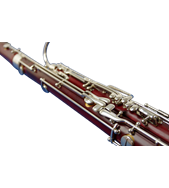
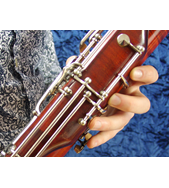
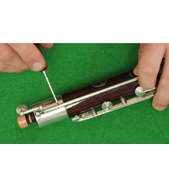
News and guides
